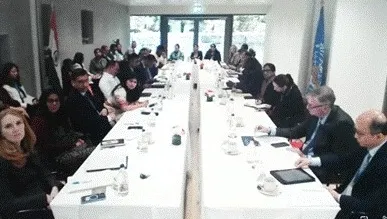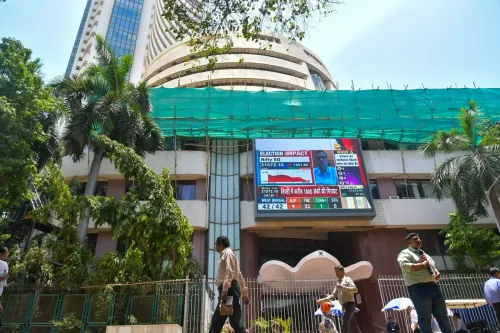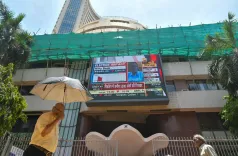Is Traditional Medicine the Key to Universal Health Coverage?

Synopsis
Key Takeaways
- Importance of Traditional Medicine: Recognized as essential for universal health coverage.
- Global Collaboration: The GFTM fosters international partnerships.
- Innovative Approaches: Integration of AI and technology in traditional medicine.
- Commitment to Health: India's initiatives aim to enhance traditional healthcare.
- Future Summits: Key global initiatives and summits planned.
New Delhi, May 11 (NationPress) The Indian government has highlighted the increasing significance of traditional medicine in realizing universal health coverage and furthering the objectives of ‘One Health and Sustainable Development’, as announced on Sunday.
The sixth meeting of the Group of Friends of Traditional Medicine (GFTM) took place successfully at the Permanent Mission of India (PMI) in Geneva.
This meeting convened representatives from various nations dedicated to enhancing the role of traditional medicine in global healthcare systems, according to the Ayush Ministry.
Vaidya Rajesh Kotecha, Secretary of the Ministry of Ayush, delivered a keynote speech virtually that emphasized India’s leadership and commitment to promoting evidence-based traditional medicine worldwide.
He reiterated India's dedication through the Ministry of Ayush with initiatives such as the National AYUSH Mission, the integrative model of Ayush Arogya Mandirs, insurance coverage for traditional medicine, and collaborative research with leading institutions like DBT, DST, ICMR, and CSIR.
He also pointed out India's engagement with emerging fields such as AI, genomics, and bioinformatics in traditional medicine — showcased during the global technical meeting on AI applications in traditional medicine, highlighting the country’s role in preserving traditional knowledge, enhancing capacity, and promoting equitable global health.
“The Group of Friends of Traditional Medicine (GFTM) was established by India in May 2023. This informal platform enables WHO member states to discuss and advocate for the integration of traditional medicine into health systems,” he stated, advocating for increased collaboration, knowledge sharing, and research partnerships.
India’s Permanent Mission to the UN in Geneva, which hosted the meeting, reaffirmed its commitment to enhancing international cooperation on traditional and integrative healthcare solutions, in line with WHO guidelines and national policies.
Through initiatives like GFTM and the leadership of the Ministry of Ayush, India is not only preserving its traditional wellness heritage but also reshaping the future of global health — one that is inclusive, preventive, and deeply rooted in the wisdom of nature.
The gathering endorsed key global initiatives, particularly the WHO Traditional Medicine Strategy 2025–2034 and the upcoming Second WHO Global Traditional Medicine Summit, scheduled to be held in India from December 2-4, 2025.








